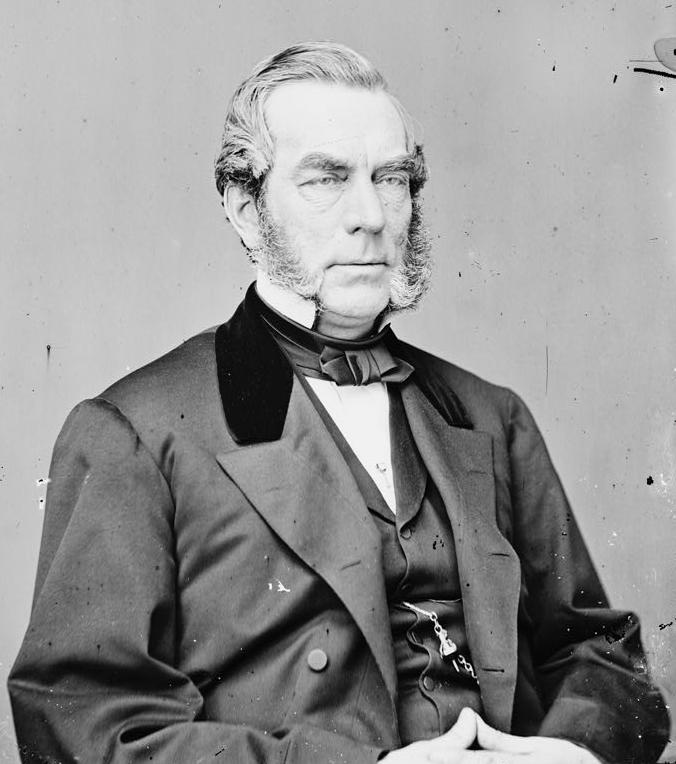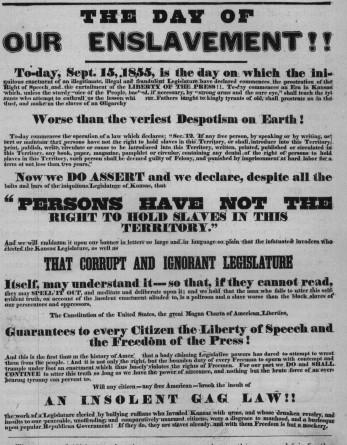|
Marcus Lawrence Ward
Marcus Lawrence Ward (November 9, 1812 – April 25, 1884) was an American Republican Party politician, who served as the 21st governor of New Jersey from 1866 to 1869 and represented Essex County for one term from 1873 to 1875. Early life Marcus Lawrence Ward was born in Newark, New Jersey on November 9, 1812 to Moses and Fanny (née Brown) Ward. His father Moses was a prosperous candle manufacturer and a descendant of John Ward, one of the founders of the city of Newark in 1666. He attended Newark's public schools and then joined his family's soap and candle making business. The business was operated by Ward's father and uncle, and Ward eventually became a partner. He was also active in other businesses, including serving as a director of the National State Bank and secretary of the Lawrence Cement and Manufacturing Company. By the 1840s, Ward's business success enabled him to concentrate much of his time and effort on civic causes and philanthropy. He was chairman of the exe ... [...More Info...] [...Related Items...] OR: [Wikipedia] [Google] [Baidu] |
Republican National Committee
The Republican National Committee (RNC) is a U.S. political committee that assists the Republican Party of the United States. It is responsible for developing and promoting the Republican brand and political platform, as well as assisting in fundraising and election strategy. It is also responsible for organizing and running the Republican National Convention. When a Republican is president, the White House controls the committee. According to Boris Heersink, "political scientists have traditionally described the parties' national committees as inconsequential but impartial service providers." Similar committees exist in every U.S. state and most U.S. counties, although in some states party organization is structured by congressional district, allied campaign organizations being governed by a national committee. Ronna McDaniel is the current committee chairwoman. The RNC's main counterpart is the Democratic National Committee. History The 1856 Republican National Conventio ... [...More Info...] [...Related Items...] OR: [Wikipedia] [Google] [Baidu] |
New Jersey
New Jersey is a state in the Mid-Atlantic and Northeastern regions of the United States. It is bordered on the north and east by the state of New York; on the east, southeast, and south by the Atlantic Ocean; on the west by the Delaware River and Pennsylvania; and on the southwest by Delaware Bay and the state of Delaware. At , New Jersey is the fifth-smallest state in land area; but with close to 9.3 million residents, it ranks 11th in population and first in population density. The state capital is Trenton, and the most populous city is Newark. With the exception of Warren County, all of the state's 21 counties lie within the combined statistical areas of New York City or Philadelphia. New Jersey was first inhabited by Native Americans for at least 2,800 years, with the Lenape being the dominant group when Europeans arrived in the early 17th century. Dutch and Swedish colonists founded the first European settlements in the state. The British later seized control o ... [...More Info...] [...Related Items...] OR: [Wikipedia] [Google] [Baidu] |
Bleeding Kansas
Bleeding Kansas, Bloody Kansas, or the Border War was a series of violent civil confrontations in Kansas Territory, and to a lesser extent in western Missouri, between 1854 and 1859. It emerged from a political and ideological debate over the legality of slavery in the proposed state of Kansas. The conflict was characterized by years of electoral fraud, raids, assaults, and murders carried out in the Kansas Territory and neighboring Missouri by proslavery "border ruffians" and antislavery " free-staters". According to ''Kansapedia'' of the Kansas Historical Society, 56 political killings were documented during the period, and the total may be as high as 200. It has been called a Tragic Prelude, or an overture, to the American Civil War, which immediately followed it. The conflict centered on the question of whether Kansas, upon gaining statehood, would join the Union as a slave state or a free state. The question was of national importance because Kansas's two new senators ... [...More Info...] [...Related Items...] OR: [Wikipedia] [Google] [Baidu] |
Fourteenth Amendment To The United States Constitution
The Fourteenth Amendment (Amendment XIV) to the United States Constitution was adopted on July 9, 1868, as one of the Reconstruction Amendments. Often considered as one of the most consequential amendments, it addresses citizenship rights and equal protection under the law and was proposed in response to issues related to former slaves following the American Civil War. The amendment was bitterly contested, particularly by the states of the defeated Confederacy, which were forced to ratify it in order to regain representation in Congress. The amendment, particularly its first section, is one of the most litigated parts of the Constitution, forming the basis for landmark Supreme Court decisions such as ''Brown v. Board of Education'' (1954) regarding racial segregation, ''Roe v. Wade'' (1973) regarding abortion ( overturned in 2022), ''Bush v. Gore'' (2000) regarding the 2000 presidential election, and ''Obergefell v. Hodges'' (2015) regarding same-sex marriage. The amendment ... [...More Info...] [...Related Items...] OR: [Wikipedia] [Google] [Baidu] |
Thirteenth Amendment To The United States Constitution
The Thirteenth Amendment (Amendment XIII) to the United States Constitution abolished slavery and involuntary servitude, except as punishment for a crime. The amendment was passed by the Senate on April 8, 1864, by the House of Representatives on January 31, 1865, and ratified by the required 27 of the then 36 states on December 6, 1865, and proclaimed on December 18. It was the first of the three Reconstruction Amendments adopted following the American Civil War. President Abraham Lincoln's Emancipation Proclamation, effective on January 1, 1863, declared that the enslaved in Confederate-controlled areas were free. When they escaped to Union lines or federal forces (including now-former slaves) advanced south, emancipation occurred without any compensation to the former owners. Texas was the last Confederate territory reached by the Union army. On June 19, 1865—Juneteenth—U.S. Army general Gordon Granger arrived in Galveston, Texas, to proclaim the war had ended and so ... [...More Info...] [...Related Items...] OR: [Wikipedia] [Google] [Baidu] |
Reconstruction Era
The Reconstruction era was a period in American history following the American Civil War (1861–1865) and lasting until approximately the Compromise of 1877. During Reconstruction, attempts were made to rebuild the country after the bloody Civil War, bring the former Confederate states back into the United States, and to redress the political, social, and economic legacies of slavery. During the era, Congress abolished slavery, ended the remnants of Confederate secession in the South, and passed the 13th, 14th, and 15th Amendments to the Constitution (the Reconstruction Amendments) ostensibly guaranteeing the newly freed slaves (freedmen) the same civil rights as those of whites. Following a year of violent attacks against Blacks in the South, in 1866 Congress federalized the protection of civil rights, and placed formerly secessionist states under the control of the U.S. military, requiring ex-Confederate states to adopt guarantees for the civil rights of free ... [...More Info...] [...Related Items...] OR: [Wikipedia] [Google] [Baidu] |
Theodore Runyon
Theodore Runyon (October 29, 1822 – January 27, 1896) was a United States politician, diplomat, and American Civil War brigadier general in the New Jersey Militia, serving with the Union Army at the Battle of First Bull Run. Runyon was a lawyer before the Civil War and mayor of Newark, New Jersey, a major general in command of the New Jersey National Guard until 1873, first president of the Manufacturers' National Bank of Newark, chancellor of New Jersey for 14 years and, between 1893 and 1896, envoy and later ambassador to Germany. Early life Theodore Runyon was born in Somerville, New Jersey of Huguenot descent. He was a direct descendant of Vincent Rongion (1644–1713), a Huguenot who was born in Poitiers, France and settled in New Jersey. Theodore Runyon graduated from Yale University, where he helped found Scroll and Key Society. Runyon was admitted to the New Jersey bar in 1846 and began the practice of law in Newark, New Jersey. Military service As a brigadier g ... [...More Info...] [...Related Items...] OR: [Wikipedia] [Google] [Baidu] |
George M
''George M!'' is a Broadway musical based on the life of George M. Cohan, the biggest Broadway star of his day who was known as "The Man Who Owned Broadway." The book for the musical was written by Michael Stewart, John Pascal, and Francine Pascal. Music and lyrics were by George M. Cohan himself, with revisions for the musical by Cohan's daughter, Mary Cohan. The story covers the period from the late 1880s until 1937 and focuses on Cohan's life and show business career from his early days in vaudeville with his parents and sister to his later success as a Broadway singer, dancer, composer, lyricist, theatre director and producer. The show includes such Cohan hit songs as "Give My Regards To Broadway", "You're a Grand Old Flag", and "Yankee Doodle Dandy." Productions The musical opened on Broadway at the Palace Theatre on April 10, 1968 and closed on April 26, 1969 after 433 performances and 8 previews. The show was produced by David Black and directed and choreographed by ... [...More Info...] [...Related Items...] OR: [Wikipedia] [Google] [Baidu] |
Hugh Judson Kilpatrick
Hugh Judson Kilpatrick (January 14, 1836 – December 4, 1881) was an officer in the Union Army during the American Civil War, achieving the rank of brevet major general. He was later the United States Minister to Chile and an unsuccessful candidate for the U.S. House of Representatives. Nicknamed "Kilcavalry" (or "Kill-Cavalry") for using tactics in battle that were considered as recklessly disregarding the lives of soldiers under his command, Kilpatrick was both praised for the victories he achieved, and despised by Southerners whose homes and towns he devastated. Early life Hugh Judson Kilpatrick, more commonly referred to as Judson Kilpatrick, the fourth child of Colonel Simon Kilpatrick and Julia Wickham, was born on the family farm in Wantage Township, near Deckertown, New Jersey (now Sussex Borough). Civil War Kilpatrick graduated from the United States Military Academy in 1861, just after the start of the war, and was commissioned a second lieutenant in the 1st U.S. ... [...More Info...] [...Related Items...] OR: [Wikipedia] [Google] [Baidu] |
Grain Trade
The grain trade refers to the local and international trade in cereals and other food grains such as wheat, barley, maize, and rice. Grain is an important trade item because it is easily stored and transported with limited spoilage, unlike other agricultural products. Healthy grain supply and trade is important to many societies, providing a caloric base for most food systems as well as important role in animal feed for animal agriculture. The grain trade is as old as agricultural settlement, identified in many of the early cultures that adopted sedentary farming. Major societal changes have been directly connected to the grain trade, such as the fall of the Roman Empire. From the early modern period onward, grain trade has been an important part of colonial expansion and international power dynamics. The geopolitical dominance of countries like Australia, the United States, Canada and the Soviet Union during the 20th century was connected with their status as grain surplus c ... [...More Info...] [...Related Items...] OR: [Wikipedia] [Google] [Baidu] |
Alexander G
Alexander is a male given name. The most prominent bearer of the name is Alexander the Great, the king of the Ancient Greek kingdom of Macedonia who created one of the largest empires in ancient history. Variants listed here are Aleksandar, Aleksander and Aleksandr. Related names and diminutives include Iskandar, Alec, Alek, Alex, Alexandre, Aleks, Aleksa and Sander; feminine forms include Alexandra, Alexandria, and Sasha. Etymology The name ''Alexander'' originates from the (; 'defending men' or 'protector of men'). It is a compound of the verb (; 'to ward off, avert, defend') and the noun (, genitive: , ; meaning 'man'). It is an example of the widespread motif of Greek names expressing "battle-prowess", in this case the ability to withstand or push back an enemy battle line. The earliest attested form of the name, is the Mycenaean Greek feminine anthroponym , , (/Alexandra/), written in the Linear B syllabic script. Alaksandu, alternatively called ''Alakasandu'' or ' ... [...More Info...] [...Related Items...] OR: [Wikipedia] [Google] [Baidu] |
1864 United States Presidential Election
The 1864 United States presidential election was the 20th quadrennial presidential election. It was held on Tuesday, November 8, 1864. Near the end of the American Civil War, incumbent President Abraham Lincoln of the National Union Party easily defeated the Democratic nominee, former General George B. McClellan, by a wide margin of 212–21 in the electoral college, with 55% of the popular vote. For the election, the Republican Party and some Democrats created the National Union Party, especially to attract War Democrats. Despite some intra-party opposition from Salmon Chase and the Radical Republicans, Lincoln won his party's nomination at the 1864 National Union National Convention. Rather than re-nominate Vice President Hannibal Hamlin, the convention selected Andrew Johnson of Tennessee, a War Democrat, as Lincoln's running mate. John C. Frémont started to run as the nominee of the new Radical Democracy Party, which criticized Lincoln for being too moderate on the issu ... [...More Info...] [...Related Items...] OR: [Wikipedia] [Google] [Baidu] |







